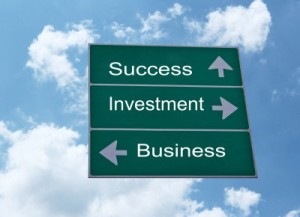For sure, the economy in many African countries is growing rapidly – more rapidly than most developed countries. The World Bank has documented the unmet demand for SMEs and SMBs on the continent. But, you cannot just assume that you can place your product or service into the African marketplace and begin to fill your bank account with profits.
Certain sectors have more potential than others. One stands out above the rest. It is the economic fire that constantly consumes fuel. Day in and day out, more cash is infused into the economy through this one sector than any other. If your product or service is not positioned to be consumed or cause consumption in this sector, your changes of sustainable profit are slim.
You ought to know how your goods or service are positioned in this king of all sectors – the retail sector.
African Retail is King
That is where the mass market exists. This is a truth in every region of the world. Retail markets are the lifeblood of the world’s economies. Africa is no different in this regard. Your product or service must directly or indirectly draw its profits from the consumer masses.
The retail sector has two major realms in Africa – the formal market and the informal market. Billions of dollars are being spent to construct malls, hypermarkets, and supermarkets on the continent. Consumers are running to them. Yet, the village open-air markets continue to offer electric appliances, medicines and cosmetics along with their standard fare of produce.
Your are in the business to business (B2B) market, you say. That’s fine, there is plenty of room for B2B products in Africa, BUT those products must help businesses reach the retail consumer.
Know matter how you look at it, you must realize that retail is king. Pitch your product to the consumer or show a business how your offering will help reach the African consumer.
If you are selling a manufacturing franchise, the product produced must ultimately reach the retail market. If it is an accounting system you are selling, it must assist the business in it’s interaction with its retail customers.
Keep in mind that the mass of retail consumers in Africa have much less money to spend than their Western counterparts. Yes, the middle-class is expanding every year, but be aware that, according to the African Development Bank, individuals in Africa’s middle-class only spend between $2 and $20 USD per day. Members of the middle-class in Nigeria earn between $500 and $600 USD per month.
If the retail market is king, then low prices are garments he wares. Quality is important, and brand awareness is on the upswing, but when it comes to African consumers making a purchase, price is the major factor. Ignore that fact at your peril.
If your product is a big ticket item, like a fridge or cancer drug, there is defiantly a market for it in Africa, but you are going to have to be patient. There are fewer potential consumers or clients with enough cash to buy them.
If you would like me to help you better understand how your product or service can be positioned in the African retail sector, lets schedule a call.
All the best in your investing and business.






